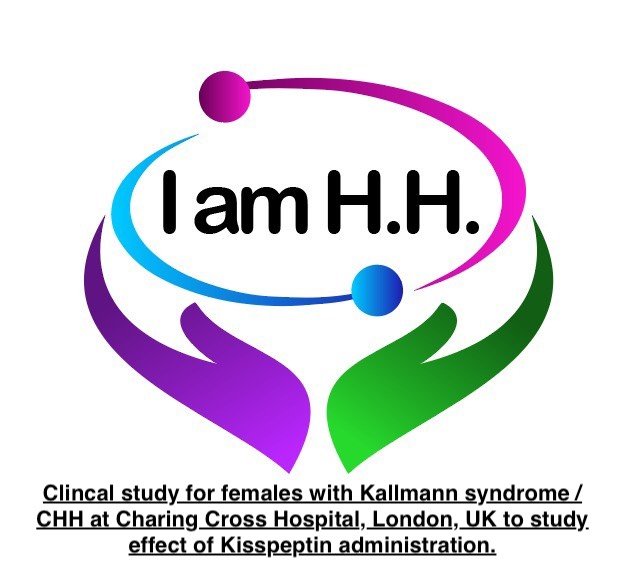Presentation on delayed puberty v Kallmann syndrome - hypogonadotropic hypogonadism
Scientific Seminars International.
Delayed puberty: Update on Causes of delayed puberty, treatment, issues on pubertal induction protocols
Presentation posted on 3rd May 2023 given by Dr Richard Quinton of Royal Victoria Infirmary, Newcastle upon Tyne, UK.
Although primarily aimed at health care professionals, mainly paediatricians this presentation can give useful information to patients with Kallmann syndrome / hypogonadotropic hypogonadism.
It highlights the protocols used to distinguish Kallmann syndrome / HH from self correcting delayed puberty and outlines the different treatment options available.
Identifying Kallmann syndrome / HH early from self correcting delayed puberty can help in the prompt diagnosis and treatment of patients, instead of them being told to “wait and see” or being incorrectly labelled as “late bloomers”.
Patient made presentation on Kallmann syndrome.
For me the psychological issues associated with Kallmann syndrome / CHH should have more recognition.
Hormone replacement therapy can help with most (but not all) of the physical symptoms and specialised gonadtropin therapy can help some patients achieve fertility.
However the fact patients miss out on both puberty and adolescence can leave patients with symptoms that last well into adulthood. The psychsocial impact of not developing correctly can leave some patients with poor body image and social confidence problems
Since Kallmann syndrome / CHH comes with a range of symptoms and severities it can affect individual patients differently. Interacting with patient groups to communicate with fellow patients can help patients learn more about their condition and hopefully form a positive outlook.
Clinical Study for female Kallmann syndrome / CHH patients in the UK.
Endocrinologists at Imperial NHS Trust in the UK are planning a clinical study focused on Kisspeptin administration to Kallmann syndrome / CHH females under 35 years of age.
The study will be based at Charing Cross Hospital in London and will involve three separate day visits to the hospital. Food will be provided during the visit as well as travel costs and attendance payment.
Kisspeptin is a hormone that directly affects the hypothalamus and normally allows the correct release of GnRH and has the potential to be used in the treatment of Kallmann syndrome / CHH both for hormone replacement and for fertility treatments.
The study aims to find the best method of using Kisspeptin in the treatment of infertility in females.
For further information please contact:
Dr Bijal Patel.
bijal.patel@imperial.ac.uk
The puberty protein - Kisspeptin
Kisspeptin is the hormone that controls puberty and the reproductive function.
Among many other functions Kisspeptin acts on the hypothalamus to allow it to release GnRH. It is this GnRH that controls puberty and reproduction.
In people with Kallmann syndrome / CHH they are unable to release GnRH at all or in the correct manner in order to function correctly.
If injected with Kisspeptin people with Kallmann syndrome / CHH will not respond in the same way other people would. This makes Kisspeptin as useful diagnostic tool for Kallmann syndrome / CHH to distinguish it from delayed puberty.
Clinical trial for Kallmann syndrome / CHH patients in UK.
A clinical trial in London for Kisspeptin test.
Kallman’s syndrome / Congenital Hypogonadotropic Hypogonadism (CHH) is a condition that is frequently due to a problem with the function of an important part of the brain called the ‘hypothalamus'.
Kisspeptin is a naturally occurring hormone (already present in the body) that was discovered in 2003 and is known to be able to be able to safely stimulate the hypothalamus.
Kisspeptin has been given at our centre in Imperial College London to several hundred men and women and has not been associated with any side effects to date.
We are looking to better understand how useful a 'kisspeptin test’ could be to identify patients with CHH and whether their ability to respond to kisspeptin could provide useful information about the current function of their hypothalamus (for example, patients with CHH can sometimes spontaneously normalise their hypothalamic function, which could be identified through a kisspeptin test).
The current research study would involve 2 visits (each lasting up to 7hrs in total starting in the morning) occurring at least one week apart at Charing Cross Hospital in Hammersmith, London.
Following an explanation of the study and a review of clinical details and examination, potential participants can indicate their willingness to take part in the research by signing a research consent form.
All research ethical practice such as confidentiality will be respected throughout.
One visit will be to have a 'kisspeptin test’ and the other will be to have the currently used test called a ‘GnRH test’.
At each visit, a cannula (plastic tube) would be placed in a vein in the arm to allow us to give the GnRH or kisspeptin hormones and then to take blood without requiring any further needles.
We would not expect participants to encounter any adverse effects during or after either visit in either the short or long term.
A blood sample will also be taken to screen for genes involved in the function of the hypothalamus.
A formal smelling test will be performed to record whether the sense of smell is intact.
Participants can eat and drink as usual and are encouraged to bring food/entertainment (wifi will be made available).
Participants will be reimbursed £100 for each visit for their time in addition to travel expenses.
If travelling from outside of London, we will also arrange accommodation if needed.
If you would like to learn more about this research, you can email us at
kisspeptin@imperial.ac.uk
and leave your contact number and we will be pleased to get in touch with more information.







